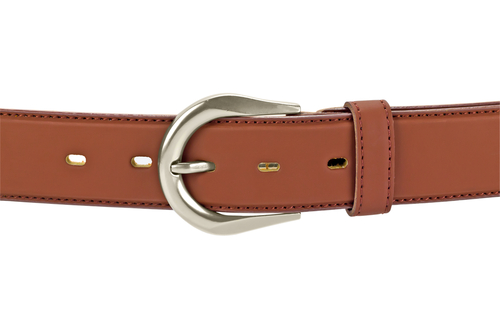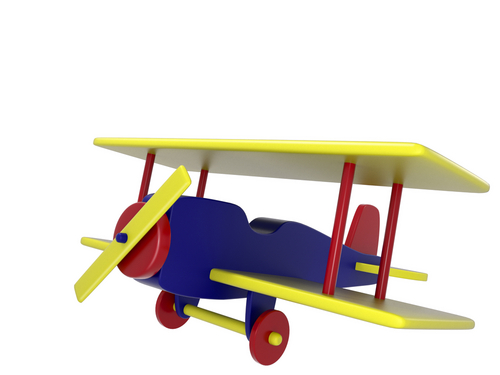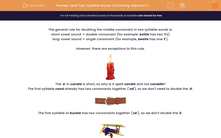The general rule for doubling the middle consonant in two syllable words is:
short vowel sound = double consonant (for example, kettle has two 't's)
long vowel sound = single consonant (for example, beetle has one 't').
However, there are exceptions to this rule.

The 'a' in candle is short, so why is it spelt candle and not canddle?
The first syllable cand already has two consonants together ('nd'), so we don't need to double the 'd'.

The first syllable of buckle has two consonants together ('ck'), so we don't double the 'k'.

Words that begin with mod- are another exception. Even though the 'o' is short and there is only one consonant at the end of the first syllable, we don't double the 'd'. This picture is of a model aeroplane, not a moddel aeroplane.
Shall we have a go at some questions now?








